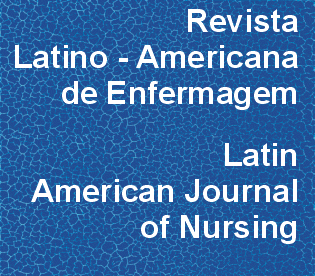Medication therapy: adherence, knowledge and difficulties of elderly people from bipolar disorder
DOI:
https://doi.org/10.1590/S0104-11692011000400013Keywords:
Bipolar Disorder, Medication Adherence, AgedAbstract
This study aimed to verify the adherence, knowledge and the difficulties of elderly patients with Bipolar Affective Disorder (BAD) in relation to the prescribed pharmacological therapy for the control of this disorder. The study included 17 elderly patients with BAD treated at a Mental Health Center. Semi-structured interviews were conducted and scales were applied. The data were analyzed using a quali-quantitative approach. A low level of adherence to the pharmacological treatment and a deficit in knowledge in relation to the medication were identified, especially regarding the dose and frequency of administration. Among the difficulties inherent to the pharmacotherapy, the obligation of polypharmacotherapy, the desire to quit the pharmacological treatment, limitations in the self-administration of the medication, collateral effects, and doubts about the need for the medication were related. Investment is needed in educational activities and in the promotion of adherence that address the difficulties experienced by elderly people with BAD in the following of the pharmacotherapy in order to ensure safety in the medication therapy.Downloads
Download data is not yet available.
Downloads
Published
2011-08-01
Issue
Section
Editorial
License
RLAE’s authorship concept is based on the substantial contribution by each of the individuals listed as authors, mainly in terms of conceiving and planning the research project, collecting or analyzing and interpreting data, writing and critical review. Indication of authors’ names under the article title is limited to six. If more, authors are listed on the online submission form under Acknowledgements. The possibility of including more than six authors will only be examined on multicenter studies, considering the explanations presented by the authors.Including names of authors whose contribution does not fit into the above criteria cannot be justified. Those names can be included in the Acknowledgements section.
Authors are fully responsible for the concepts disseminated in their manuscripts, which do not necessarily reflect the editors’ and editorial board’s opinion.
How to Cite
Medication therapy: adherence, knowledge and difficulties of elderly people from bipolar disorder . (2011). Revista Latino-Americana De Enfermagem, 19(4), 944-952. https://doi.org/10.1590/S0104-11692011000400013



